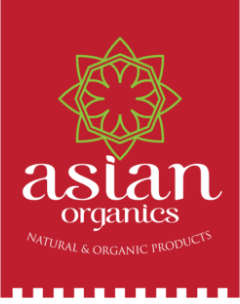The term Organic Food has been an up and coming trend that we most certainly have heard about. We’ve heard about it from online sources, to television commercials, to signage in markets and stalls, it’s all over the place. But do we really know why we should do the shift to organic food and how good organic food really is?
Yes, these advertisements tell you it’s safer and healthier but to what extent and by how much? And what better way is there to answer the question of how much, than to answer it with numbers?
So here are some numbers we’d need to remember when it comes to organic food.
69% higher in antioxidant levels [1]. According to studies in 2011, antioxidant levels are higher in organically produced vegetables as compared to their non-organic counterpart. These antioxidants help prevent harmful chemical reactions promoted by oxygen, peroxides or free radicals [2]. Antioxidants have been a major hype throughout the turn of the century, and various studies promote its benefits. One notable benefit of specific antioxidants like beta-carotene, zinc and vitamin E is that they are responsible for protection against advanced age-related macular degeneration. [4]
27% higher in amounts of vitamin C [3], though some organically produced berries and corn were found to contain up to 52% more Vitamin C than its commercial counterpart [1]. Iron content and magnesium content are higher by 21.1% and 29.3% respectively [3]. Vitamin C is common in citrus foods, broccoli, and tomatoes [5] “Vitamin C is important in healing wounds since it is needed for the growth and repair of tissues in all parts of your body.” [5] “Iron on the other hand is found in the body’s red blood cells, which carry oxygen-rich blood to every cell in the body. Iron is also involved in producing ATP, which is the body’s energy source.” [6] And Magnesium is important in the production of DNA and RNA, and of proteins and enzymes. Magnesium is also responsible for our body’s cholesterol regulation. [6]
30% lower nitrate levels, nitrates are commonly found in fertilizers used in crops and are linked to an increased risk in certain types of cancer. With the lack of use of artificial fertilizers, the nitrate content in organic crops are greatly reduced [1].
48% lower in toxic metal (Cadmium) content, and lower risks of pesticide residues. Though its commercial counterpart is still below safety limits, these chemicals can accumulate through our body overtime which may then potentially cause harm. [1] Strong chemical fertilizers and insecticides are less likely to be used in organically grown produce hence greatly reducing the amount of trace chemicals that the plants get from the fertilizers and insecticides used in growing them.
These are just few of the many benefits of organic food over their conventional counterparts. The ways and means on how organic vegetables and fruits are grown drastically reduce its exposure to harmful chemicals from fertilizers and insecticides, thus promoting the natural growth of the produce.
We are aware about how mass produced vegetables and fruits are farmed-how they are bombed with fertilizers to make plants grow faster, and with insecticides to keep pests away. These chemicals seep into the fruits and vegetables and at times carry chemical traces with them.
It is prudent to be careful and mindful of our health as there is more to what we eat than we know about. Going organics is one way to keep our health in check. By knowing that food is produced in the safest way possible, we can be assured that the food is safe and nutritious as well.
Sources:
[1] What is Organic Food, and is it Better Than Non-Organic, Dr. Mary Jane Brown, RD, 14 May 2016, https://authoritynutrition.com/what-is-organic-food/
[2] Antioxidants, Merriam Webster
[3] Top 10 Reasons To Go Organic, Renee Loux, 3 November 2011, http://www.prevention.com/food/healthy-eating-tips/top-reasons-choose-organic-foods
[4] Age-Related Eye Disease and Antioxidants, Antioxidants: Beyond the Hype, The Nutrition Source, School of Public Health, Harvard T.H. Chan, https://www.hsph.harvard.edu/nutritionsource/antioxidants/#antioxidants benefits
[5] Vitamin C (Ascorbic Acid), Steven D. Ehrlich NMD,University of Maryland Medical Center, last reviewed 16 July 2013, http://www.umm.edu/health/medical/altmed/supplement/vitamin-c-ascorbic-acid
[6] Iron, Steven D. Ehrlich NMD,University of Maryland Medical Center, last reviewed 23 June 2015, http://www.umm.edu/health/medical/altmed/supplement/iron
[7] What is Magnesium? How it Functions in the Body. Ancient Minerals by enviromedica. http://www.ancient-minerals.com/magnesium-benefits/what-is-function/




